“A big gamble”: Inside a savings group for refugees living with a disability in Uganda
- God is Great Association (GIG), is a savings club that unites and services refugees living with a disability in the Omugo refugee settlement by providing them with accessible finance.

New Covid-19 infections and deaths seem rare, but not its associated effects on refugee persons with disabilities in Uganda, who are rewriting local narratives about their status as they build their local financial means.
32-year-old Guya Martin, one of the refugee Persons with disabilities in Uganda’s Rhino camp refugee settlement, had to prepare for how to overcome the pandemic’s scourge on their livelihood. He and 15 other persons with disability teamed up to form God is Great Association (GIG), a savings club that unites and services refugees living with a disability in the Omugo refugee settlement.
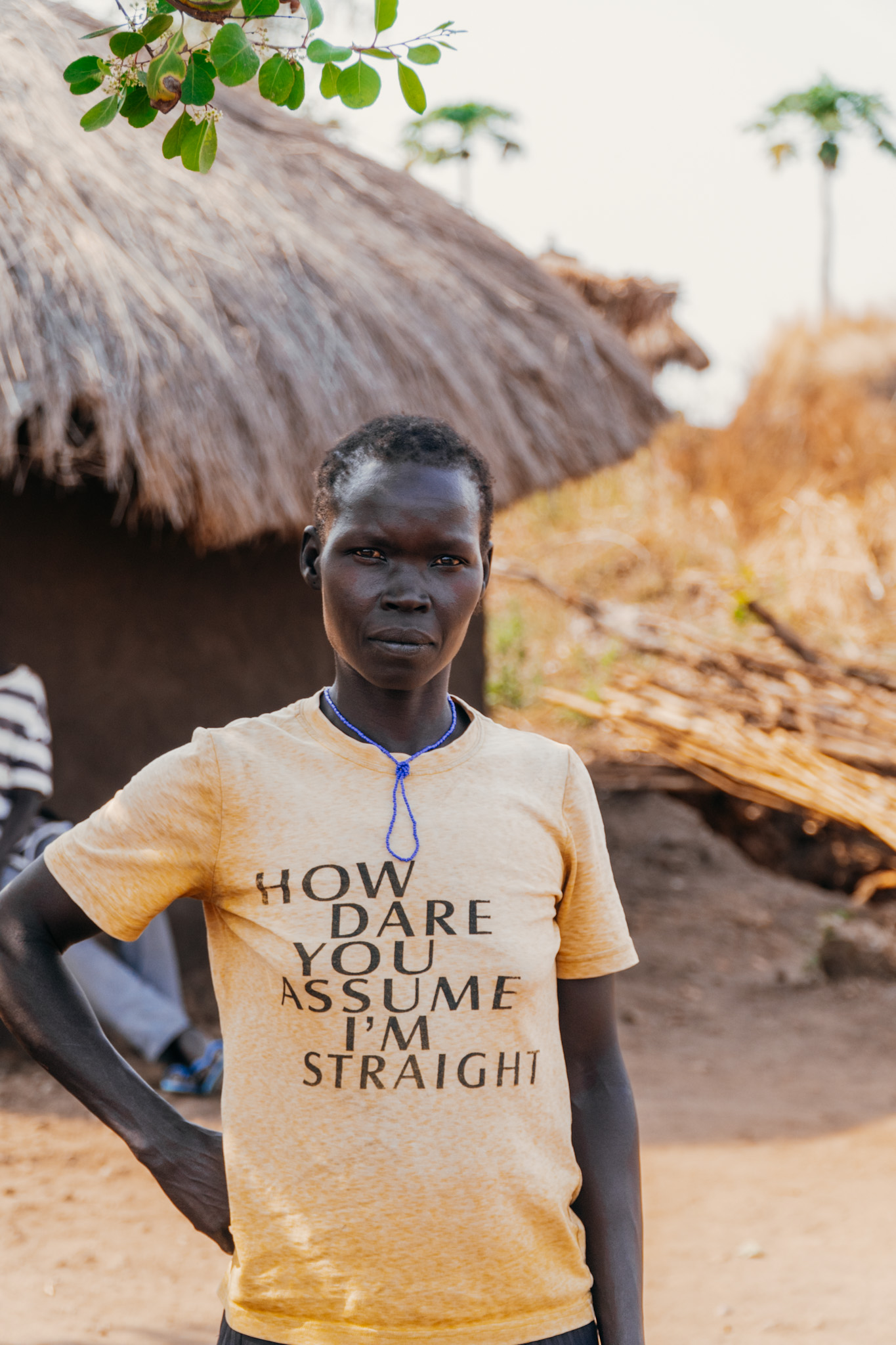
In January 2022, Uganda reopened schools country-wide, ending a two-year-covid19 lockdown – one of the world’s longest. As the country’s president Yoweri Museveni made this announcement, Guya felt a sense of joy at the thought of his children’s return to school. But it was a joy that didn’t last long. After his initial reaction to the announcement of schools re-opening, he was faced with the reality of the financial cost of taking his children back to school. The lockdown had been hard on him financially, almost taking him back to square one, when he initially arrived in Uganda.
Guya is a South Sudanese refugee living in Omugo Refugee Camp, a settlement in the Northern region. The camp hosts over 40,000 of the almost one million South Sudanese refugees registered in Uganda. He lives there with his wife and six children, four of whom are of school-going age. Guya, who does not have full use of one of his legs, fled South Sudan in 2018, two years after the civil war resumed. Together with his family, he walked for weeks through the deep forest of Equatoria on foot. He arrived in Uganda the following year, terrified, exhausted and empty-handed.
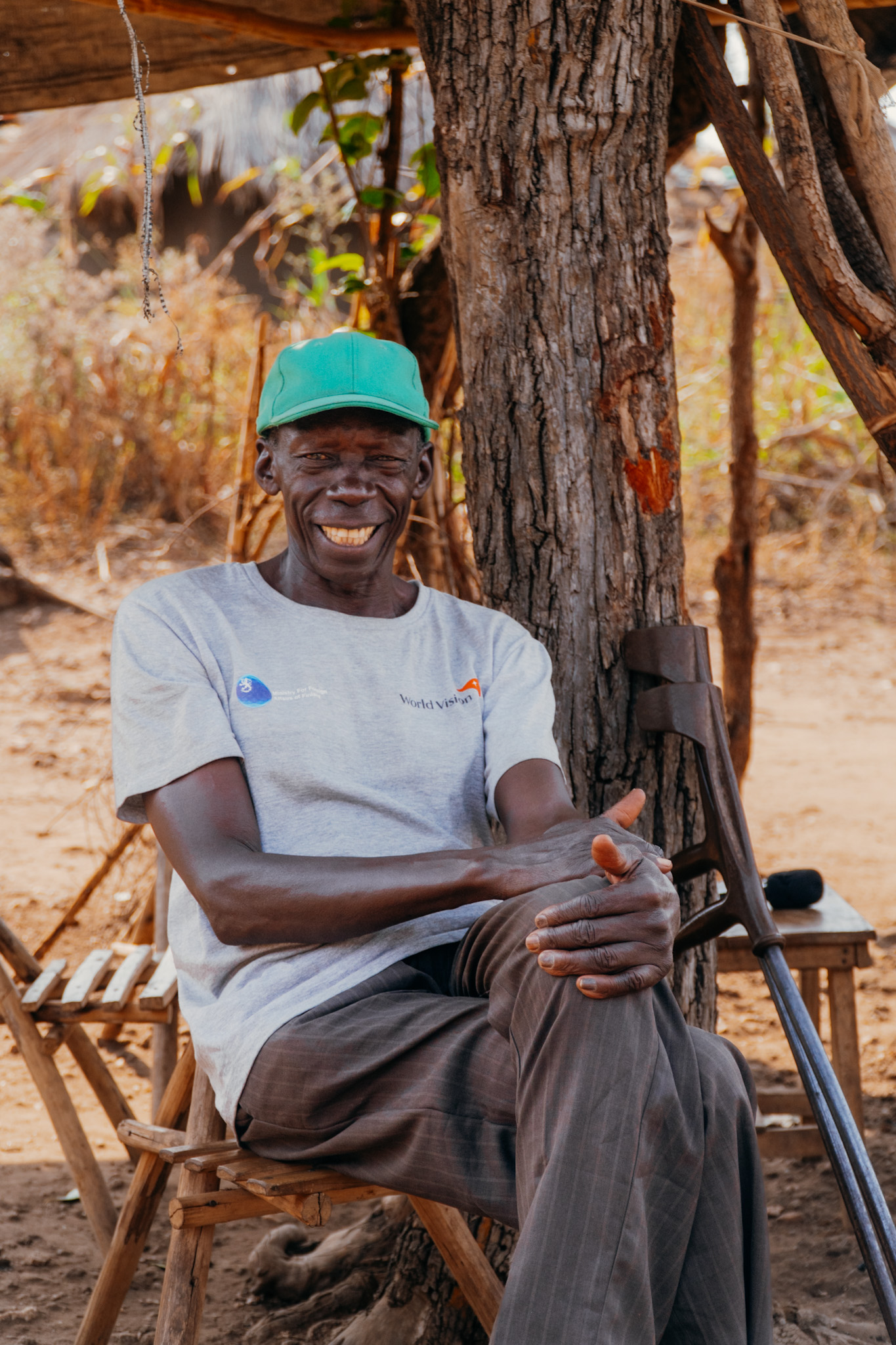
Nonetheless, he managed to rebuild his life. He started by attending trauma healing sessions offered at the settlement. This helped him to let go of what he lost back home in the conflict and focus on a new future for his family. He soon started a small-scale vegetable and sorghum farming business.
Due to the financial impact of the lockdown, Guya could not afford to buy school uniforms and shoes for his children when they asked. “I was very disappointed because I had nothing,” Guya says. “I was like we left South Sudan because we need[ed] safety and education for our children here, but then we lost everything we had. How could I support them?”
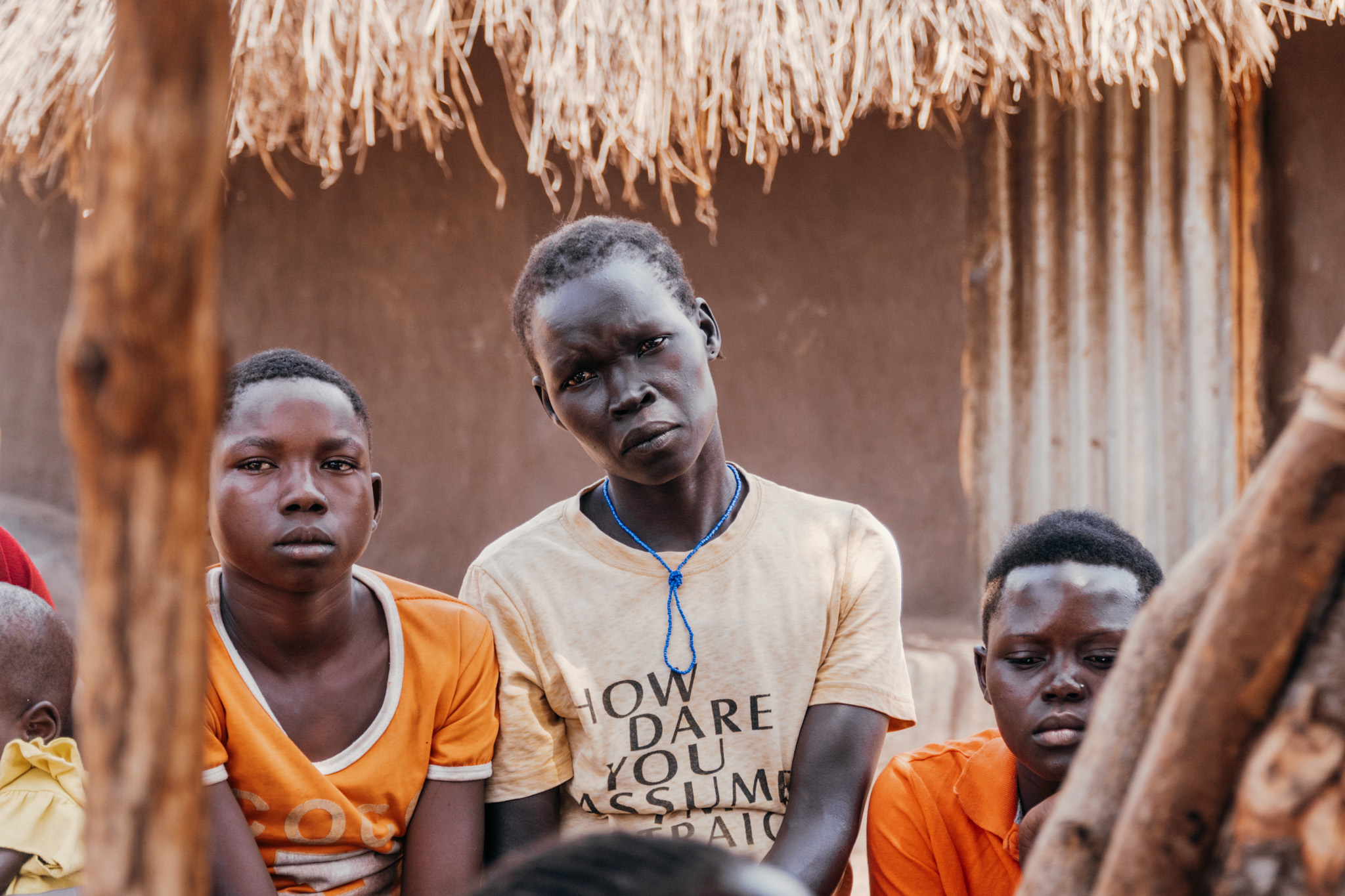
Accessible finance
In April 2021, a time when they were under lockdown and could not make much or any money, Guya’s association kept on saving their money. The association put together every extra cent it could spare in a bid to attain self-reliance during one of the most difficult economic periods in recent history.
GIG members are mostly small-scale business owners. They contribute to the fund from the little they make from selling their agricultural produce. The association, which now has 20 members, meets most of the members’ urgent and uncomplicated financial needs without long turnaround times or complicated requirements.
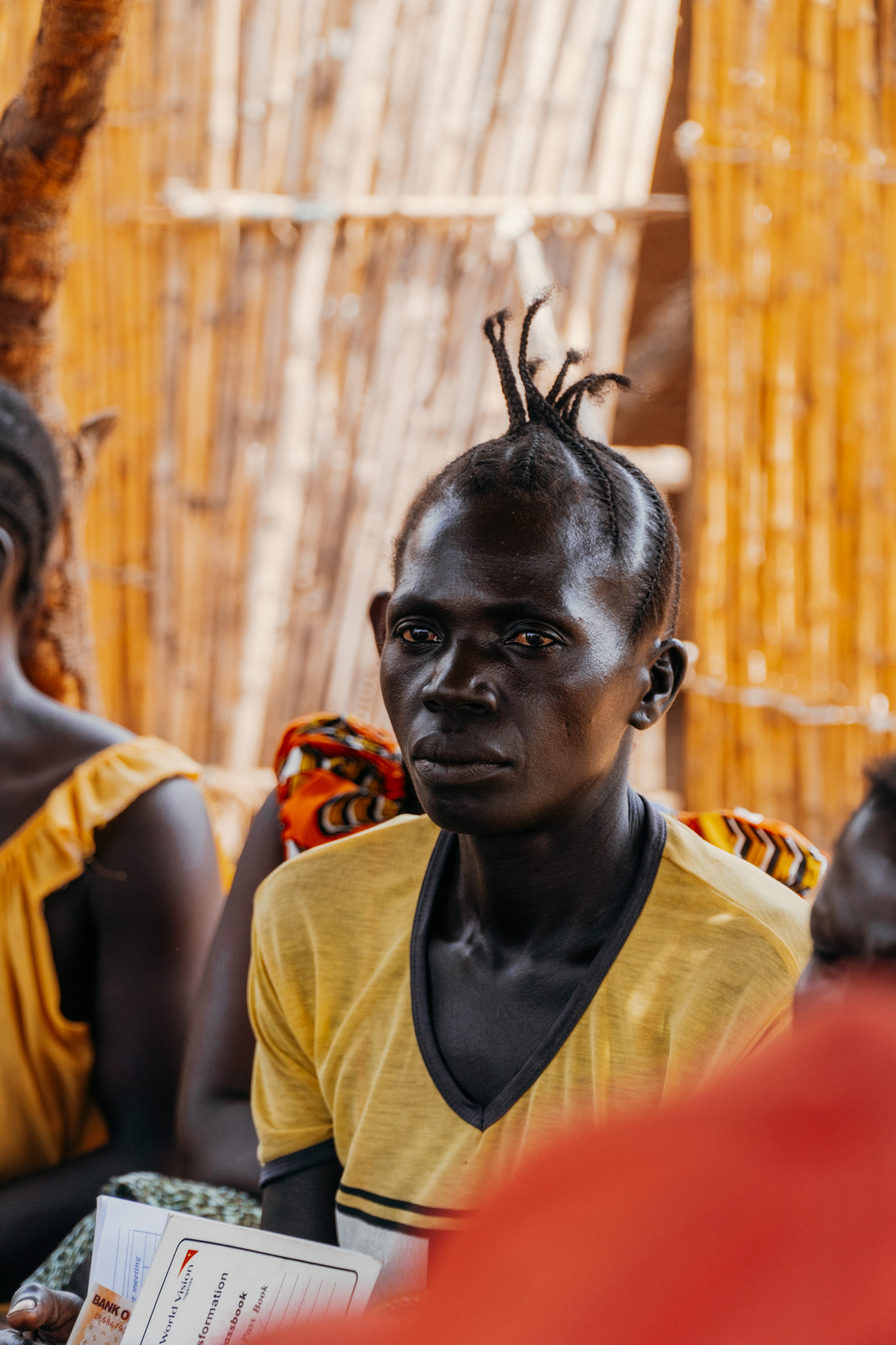
“Before, meeting the school needs of my children had been challenging. Now if I have a very serious issue, I can get a loan and return the money later,” says Guya.
In addition to the time when schools reopened, Guya says the association has already helped him on several occasions. “I have accessed and used our savings money many times. I used the money to help solve some challenges in my family and I also bought a book for my child. Recently, I borrowed 50,000 UGX and paid back 55,000 UGX.”
Members are charged 10% monthly interest on the amount borrowed. Members contribute 6,000 UGX(about two dollars) weekly, which includes 5,000 UGX that goes towards the association’s savings and 1000 UGX towards a social fund. A social fund is limited emergency money borrowed by members without any interest charged. The money has to be returned within a specified period. Members often use it to respond to urgent family needs such as sicknesses. Those who do not pay their loans on time are fined up to 1,000 UGX.
Local savings known as Village Savings and Loans Associations(VSLAs) have become a popular model in developing countries. A study conducted in Uganda, Ghana and Malawi, averaged take-up rates of VSLAs in these countries was 32%. It found that people in the rural parts of these countries prefer VSLAs to formal financial institutions such as banks in accessing immediate finance.
“Without formal financial services such as credit and savings products it can be difficult for the rural poor to afford major expenses, invest in their farms or businesses, and pay for unexpected events like illnesses or funerals,” says the study. However, it noted the risk of theft, fire and loss resulting from bad weather like rains as some setbacks.
At the GIG association, members had saved close to 3 million UGX (almost 860 USD) in the first cycle, which usually runs for a year.
According to the United Nations Refugee Agency, 4.56% of 1.4 million refugees in Uganda live with disabilities. Duku Cons, a founding member and secretary of GIG, says refugees living with disabilities face a hard time as they are often labeled as “useless, burdensome, and cursed.” This naïve conclusion, he says, deepens the marginalization of disabled refugees and discourages them from fully participating and contributing to society. They are often not seen by society and their struggles are not considered. He says their association is targeted at refugees living with disabilities to fight back against these beliefs and show they are as capable as anyone else.
Duku, who also lives with leg impairment, says the success of the project has done what they hoped it would do: silence critics and reshape the community’s view on refugees living with disabilities.
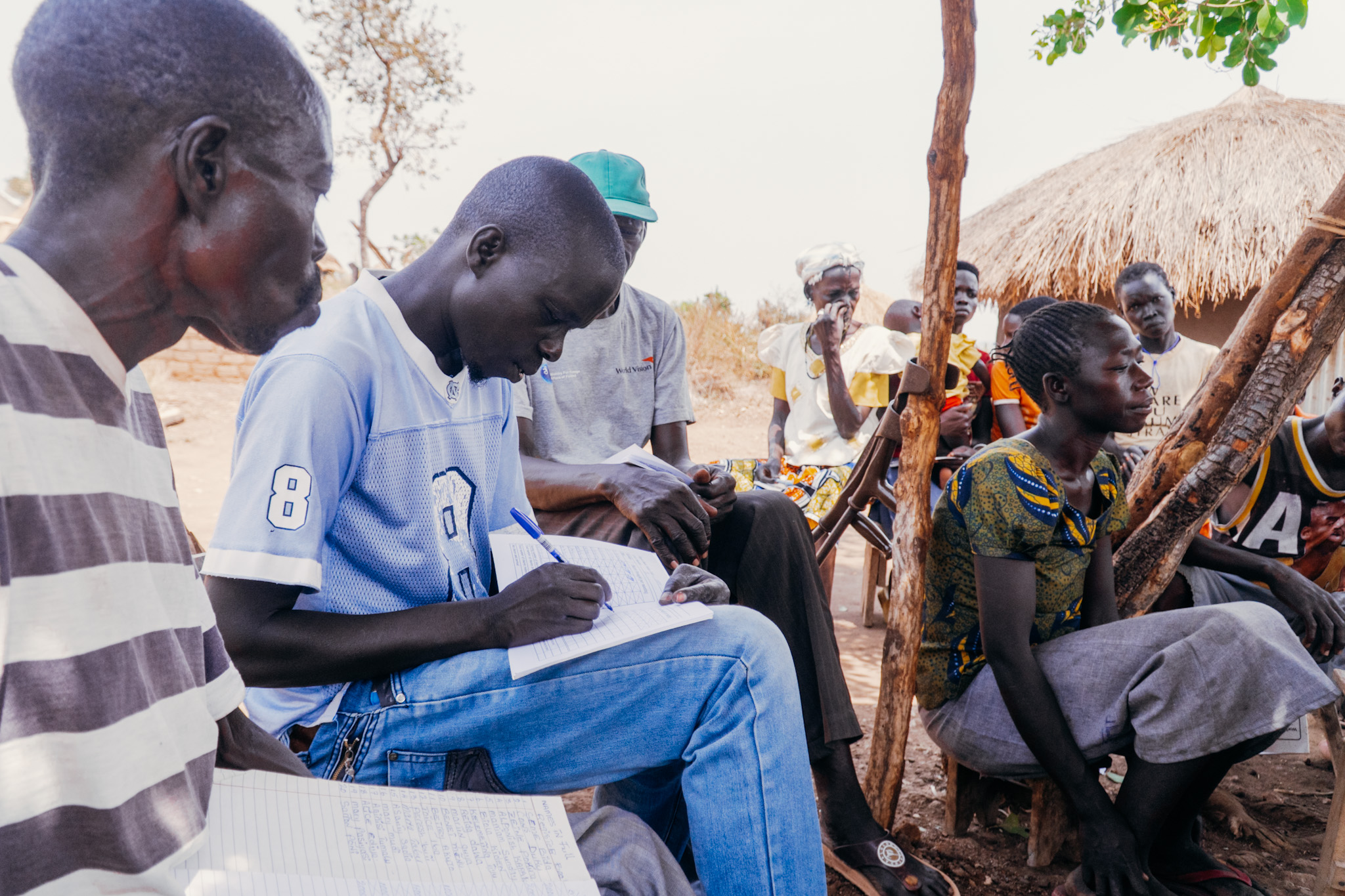
Adding relief
Other GIG members agree that the project has been a success because it has made their lives easier, especially since the World Food Programme (WFP) cut food supplies to refugees by 60% in 2022 due to funding shortfalls.
“It is challenging. You find that our food finishes before the end of the month,” says Pasiasi Mari, a 32-year-old visually impaired South Sudanese mother of seven who sells vegetables. She has been in Uganda since 2019.
With the help of the association, she’s now able to make ends meet for her family. At the end of each year, the members divide amongst themselves the profits made from interest and fines charged to members. Some of the profit is used to ensure the sustainability of the project.
“Our savings are really helping us and our children at home. I can now get some essential things like sandals and body lotion for my children in school,” says Pasiasi.
Although the association is growing, even attracting refugees without disabilities, Duku says if they are to give their community the kind of service it deserves, they need support from other organizations. “We need partners to help us. We have no financial training. So far, everything we have accomplished was just a big gamble,” he says.
While waiting for these partnerships, the association remains undeterred in its mission to help refugees living with disabilities in Uganda to rise beyond the harrowing circumstances life has thrown at them.
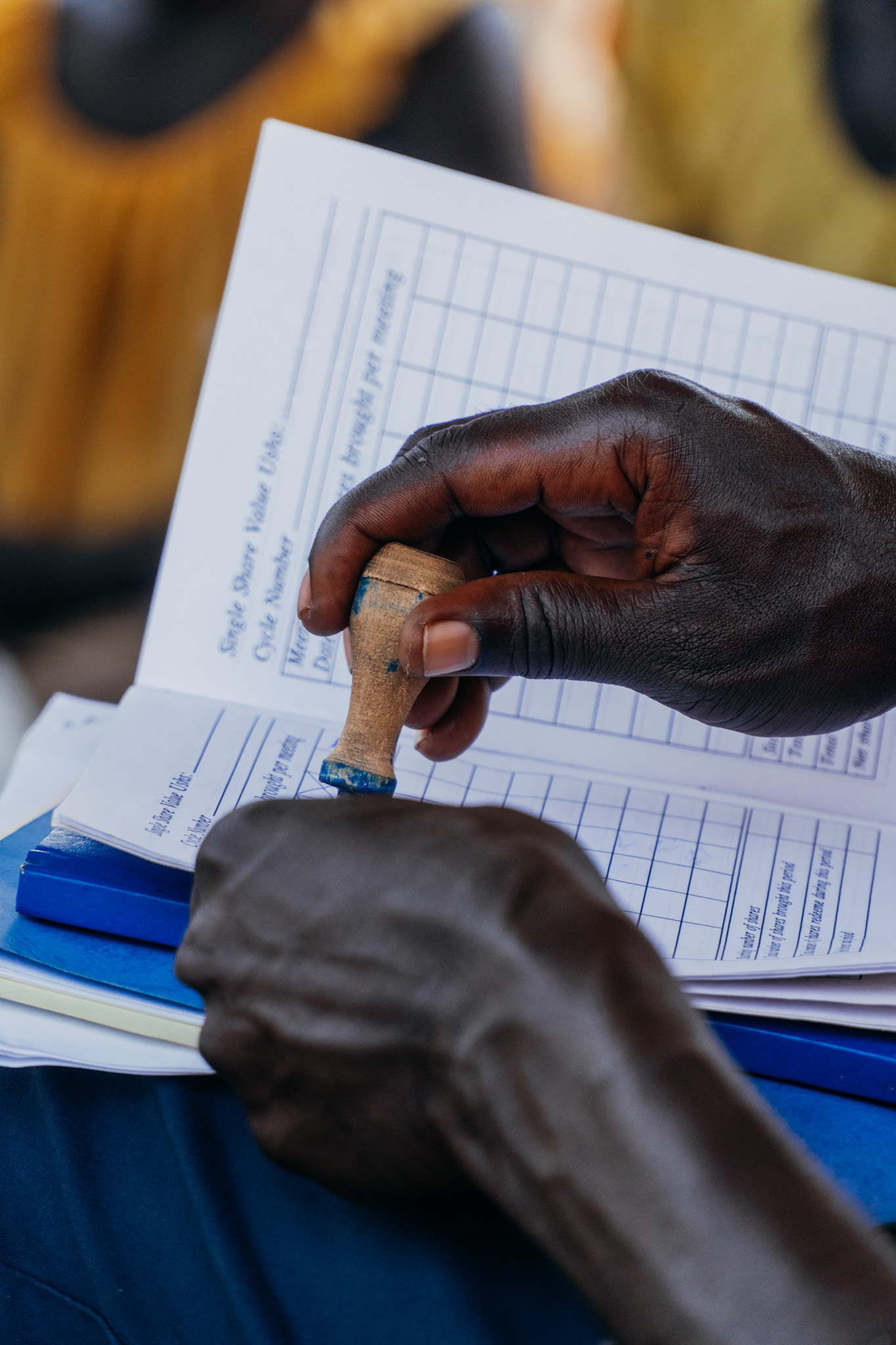
But then increasing savings at hand means more risks, says Abugo Samuel Elly, a financial expert for Loms Forex in Uganda; he advises that village savings and loans businesses in refugee settlements need to make use of the local banks to keep excess.
“Looking at the security and safety of your money,” Abugo says, “It is important to keep money in the bank because keeping money in the settlement with a specific person or in the family is not 100% safe at any point. Thieves can break into your family at any time and take away your money. …though we have treasurers in saving groups, trust is always very difficult to earn.”
Guya equally shares this worry, fearing more risks like fire and corruption could destroy their savings. As he commits to saving more, his colleagues are working hard to open a bank account in the association’s name, which Abugo believes would entitle the group to many benefits not limited to access to large capital.
“Banks spend millions of money every year to ensure that they keep their customers’ money safe. To some extent, there are some banks that have [a] good reputation. They’ve got some insurance covers,” Abugo says.
With Guya’s association undeterred in their savings, they hope a helping hand to their struggles would help them top the quest for resilience.
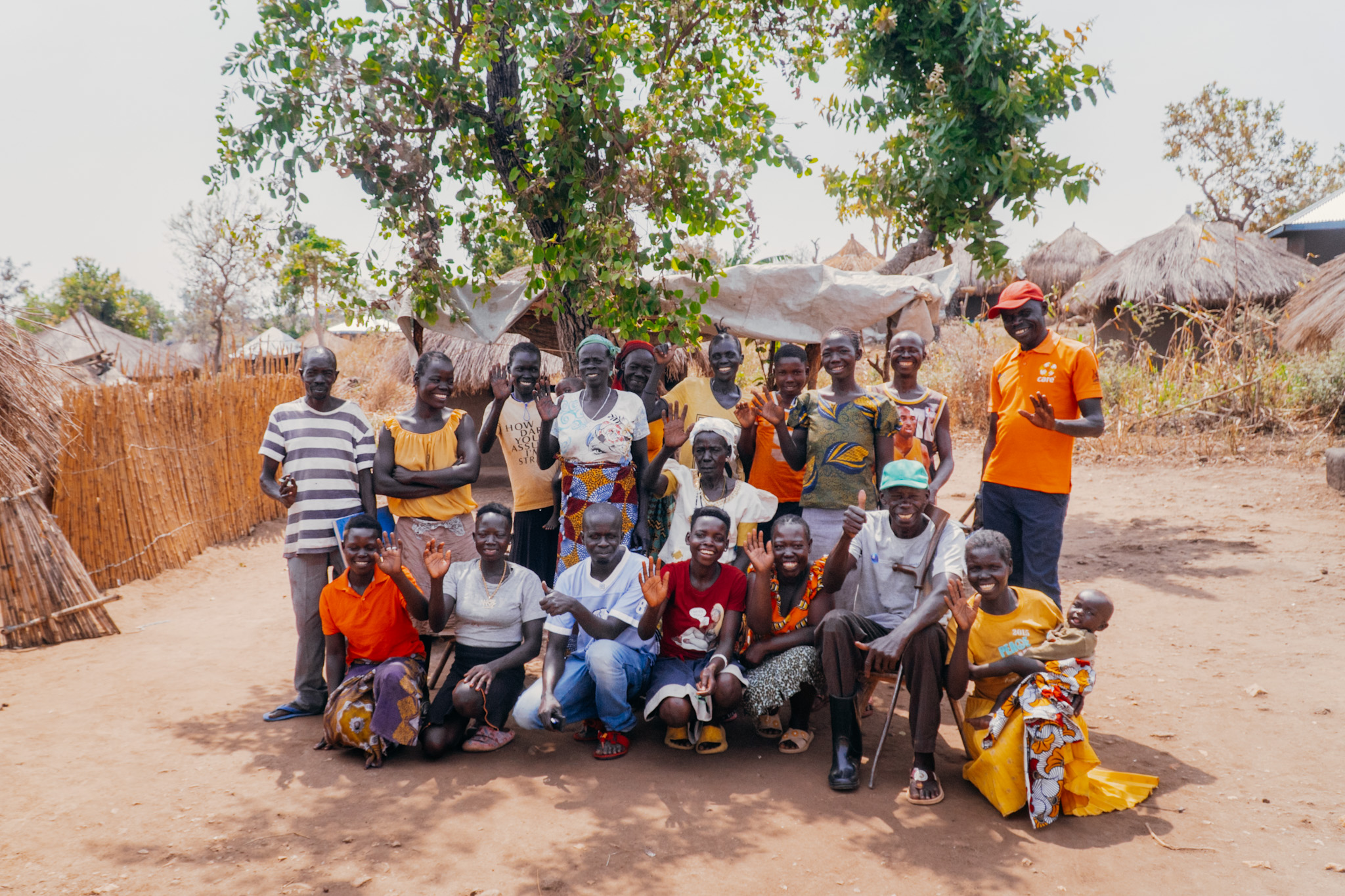
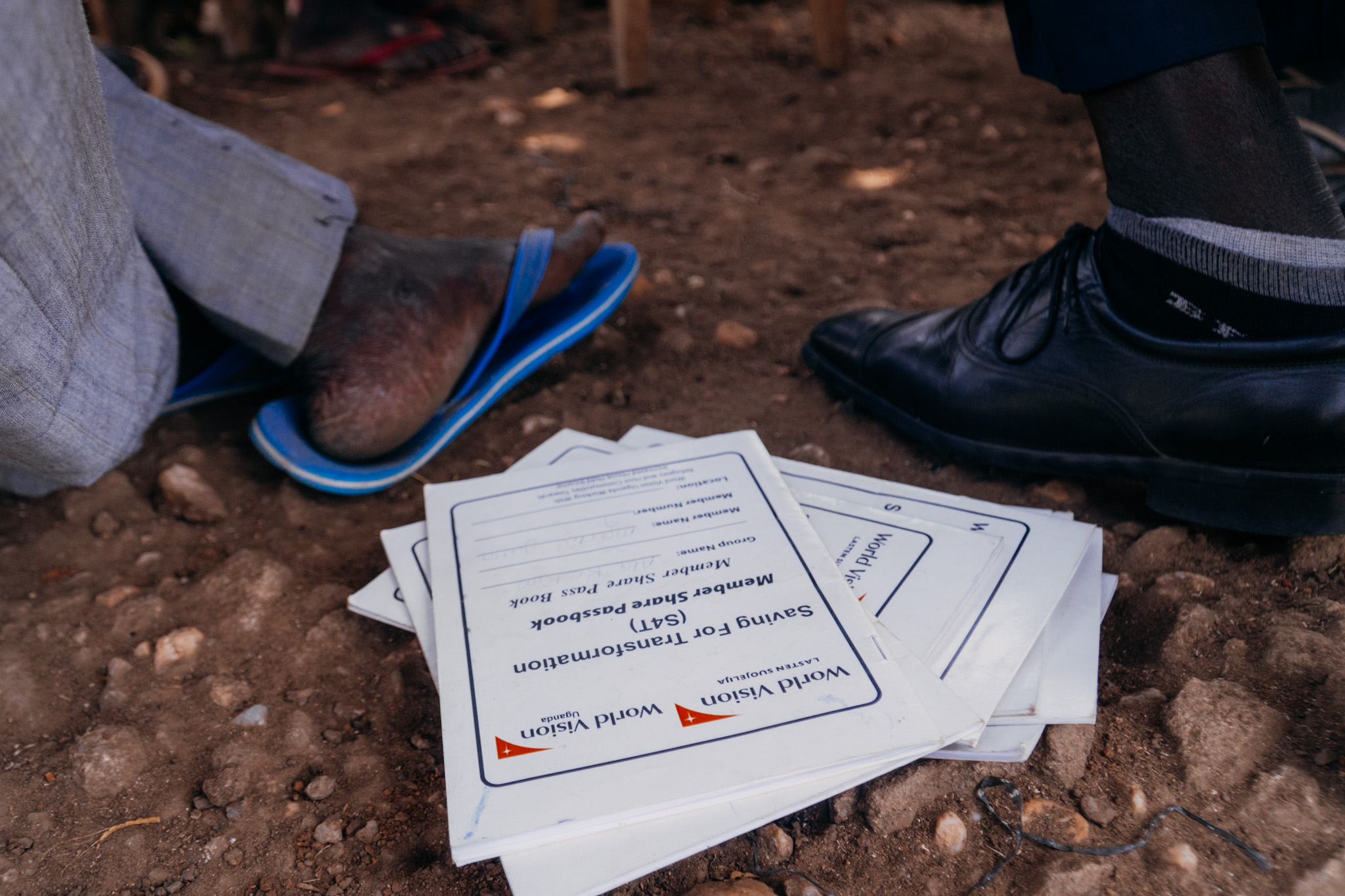
Edited and reviewed by Mamaponya Motsai, Cassandra Roxburgh, Caleb Okereke, and Uzoma Ihejirika.
Alison Lemeri Francis is a 2022 Minority Africa Fellow. He is a South Sudanese refugee, journalist and podcast producer in Uganda. He produces a community-centered media podcast for refugees in Omugo refugee settlement. Lemeri has more than 5-years of experience in media work including reporting for print, radio and online media. He’s currently a student of Morris Journalism Academy Australia specializing in freelance journalism and is a graduate in Business Administration from Makerere University Business School. He’s passionate about telling in-depth stories of local grassroots efforts and underreported voices in areas of media, entrepreneurship, education, environment and climate change.






